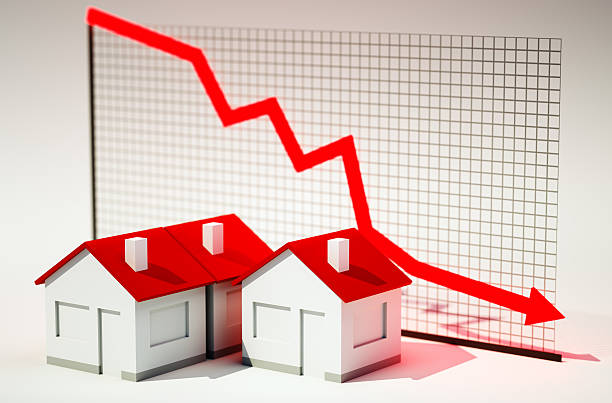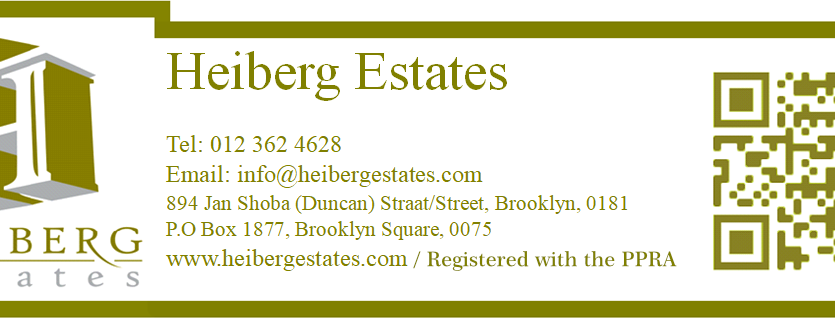HEIBERG ESTATES NEWSLETTER: AUGUST 2023

Dear Propery Partners
Our SA Property Market has been under pressure for an extended period now and with supply exceeding demand by far, increasingly Sellers are forced to reinvestigate their price expectations in order to sell their properties. Rising costs across the board are forcing potential Buyers to adopt a wait-and-see attitude, making it a challenging selling market.
The present status quo points to an absolute Buyer’s market which is not expected to change in the foreseeable future. A recent FNB released statistic is underlying this factor where it was stated that the average discount quantum on asking price is around 10% and that 81% of Sellers in the second quarter of this year had to lower the Selling price in order to sell their properties. An increase of 6% compared to the previous quarter. Looking at global housing market, the trend of moderation is being continued worldwide due to rising interest rates constraining demand and resulting on lessening sales volumes and downwards pressure on property prices.
With the repo rate not being increased during the most recent SA Reserve Bank July meeting, (the first time since November 2021), it is still unlikely that we are going to see any decreases in our repo/interest rate this year. Especially since our fragile rand exchange rate has again taken downwards pressure lately and with international oil prices on the increase. Good news by StatsSA is the release of the latest inflation rate that surprisingly fell by 0.9% to 4.7%, the lowest in 2 years and now the lowest since the 4.6% recorded in July 2021. This latest good news hopefully will be a positive factor in the SARB’s September decision to reconsider its stance regarding yet another increase in the repo rate in its bid to curb inflation. Loadshedding still has a huge impact across the SA Property sector and it is calculated that loadshedding alone, had reduced our GDP last year with 3.2% with a reduction of between 2%-3% in our GDP expected for this year. Mall owner Resilient, has recently announced that it is about to spend R1bn in alternative energy to shield its malls from loadshedding!
With our high interest rates, consumer affordability is restricted and with fewer people being able qualify for a bond with economic challenges filtering into most households. Fewer property transactions are taking place – a fact that is widely recorded all over our country, further reflecting in our extended stagnant property market. For our buy-to-let property investors, at least the present status quo is a positive where the demand for rental properties is on the increase. With continued and increasing demand and lessening rental stock, monthly rental payments is on the increase. Due to economic headwinds on all fronts, it is especially the lower-income potential property buyers that are affected with growing numbers being forced to opt for renting.
Some of the latest property statistics and interesting facts:
- The FNB House Price Index points out that property price growth slowed to 1.1% year-on-year last month, down from 1.6% in June which is in line with continued declining in buying activity. Furthermore as also illustrated by less mortgage applications/approvals and declining average bond amounts by about 3% where the latter, is a first decline recorded over the past 14 years.
- Interesting to note that year-to-date tax data reveals that property transfer duties are down 10.3% compared to the same period last year, underlining the declining demand and a downscaling trend amongst Buyers.
- Pretoria’s property market is without doubt presently a Buyer’s market with declining prices and sales volumes noticeable. However looking at the last decade, it is still a great performer with StatsSA data showing a price growth of around 91% between 2010 and 2022, compared to Johannesburg’s 71%.
- Interesting to note that a FNB report shows that semigration (moving between provinces) has overtaken emigration as a key driver for residential property sales in our largest metros, where this attributes to about 10% of property sales as recorded during the second quarter.
- Emigration related property transactions have lost prominence within the domestic market and declined from around 18% of sales as recorded in 2019, to an average of 9% so far this year.
- Also interesting to note that properties being bought by foreigners, are on the decline. Sales to foreigners declined from the peak of 6% in the third quarter 2016, to 3% as recorded during the second quarter this year – which is below the long-term average of 4.2%. This state of affairs contributing in part to the restrained trajectory of house price increases in our beloved country, and illustrating foreign buyers not capitalising on our depreciated currency exchange rate, most likely reflecting growing negative sentiment towards our country with all its extended challenges.
- FNB also reports that the number of ex-pats buying property either to come back home or as a buy-to-let investment, has dropped from an estimated 3% peak at the end of 2020 to 2% as recorded during the last quarter of this year.
- With all the economic challenges, especially high interest rates curbing affordability to buy property, many of our financial institutions are also gradually increasing there criteria for bond qualifications. Banks are reporting reduced market share for approved new bond applications, whilst new bonds that were approved during the first six months of this year, declined with 23% in comparison with the first six months last year.
- Bond applications are declining and 25% less applications where received during the 2nd quarter in comparison with the 2nd quarter last year. Compared to the third quarter 2021, it declined by 30%. This state of affairs also pointing to our stagnant property market, especially taking into account declining affordability where e.g. the monthly payment of a bond of R1m, increased by a whopping 40% since 2021!
- Financial institutions like ooba furthermore report that increasingly home buyers are opting to pay bigger deposits in order to reduce their monthly payment responsibilities with our extended high interest rate. The average deposit of 7.5% as recorded during the first quarter this year, went up to an average of 8.4% during the second quarter, whilst it was recorded at 9.6% of the purchase price amongst first time buyers.
- First time buyers are noticeably on the decrease and is presently estimated to represent 46.5% of bond applicants versus the 48.2% recorded during the 2nd quarter, and the peak of 56.2% recorded during May 2020.
With the extended struggle to curb inflation amid alarmingly low economic growth and rising unemployment, we have to be realistic that for the time being real property growth is expected to remain marginal. But the other side of the coin with this extended Buyer’s market, is that exceptional property opportunities present itself and it is a great time to either enter the SA Property Market or for the buy-to-let investors. Serious property investors are well aware of this fact and as such it is being illustrated by the fact that during June 2023, 10.9% of bond applications were for buy-to-let property investors – the highest recorded since February 2009! And also interesting to note that in the Western Cape 30.4% loan applications were for buy-to-let properties.
In Pretoria the buy-to-let property market is still active as our anchors for the continued buoyant rental market is guaranteed to stay. Our rental market clearly supported by the presence of more than 130 diplomatic institutions, corporate headquarters, our outstanding universities and schools, just to name a few!
In order to make a solid and lasting property investment, is to do a thorough assessment in co-ordination with your professional and well-seasoned estate agent’s assistance to guide you in your strategic/financial decision-making to ensure that you make the the right investment taking your personal and unique circumstances into account for the short, medium, and long term. We all are aware that especially looking at the longer term, property remains to be a strong and stable investment and is outperforming numerous asset classes.
That is where our Heiberg Estate Team remains to be on 24/7 to assist in any property related matters – so please contact us and also visit our website: www.heibergestates.com / scan our QR-code.

With best and warm wishes.
Yours faithfully
Bambie & Heiberg Estates Team






